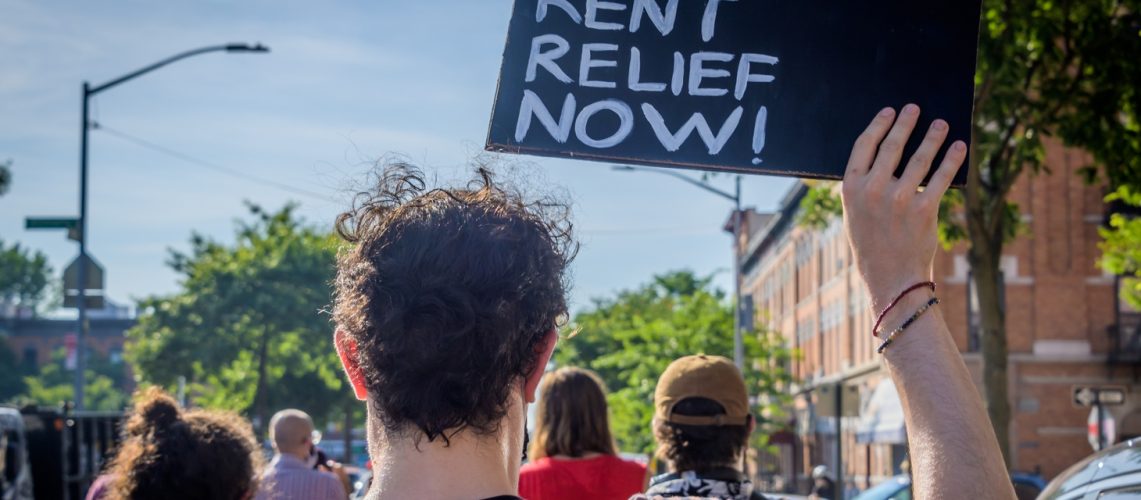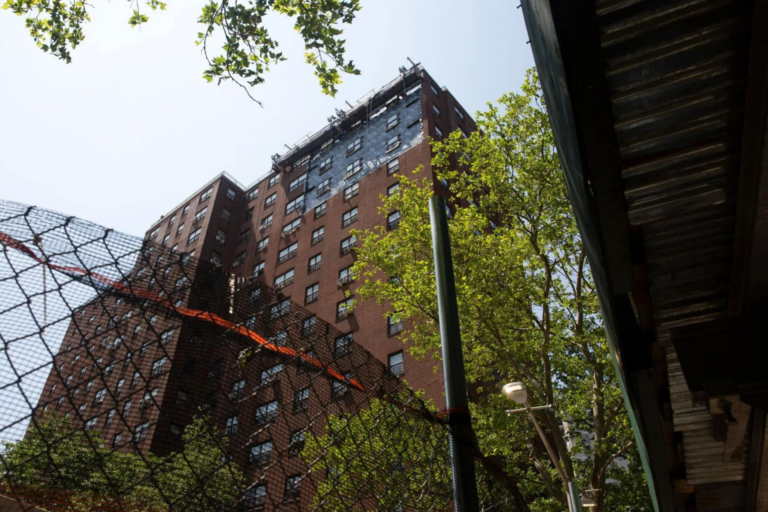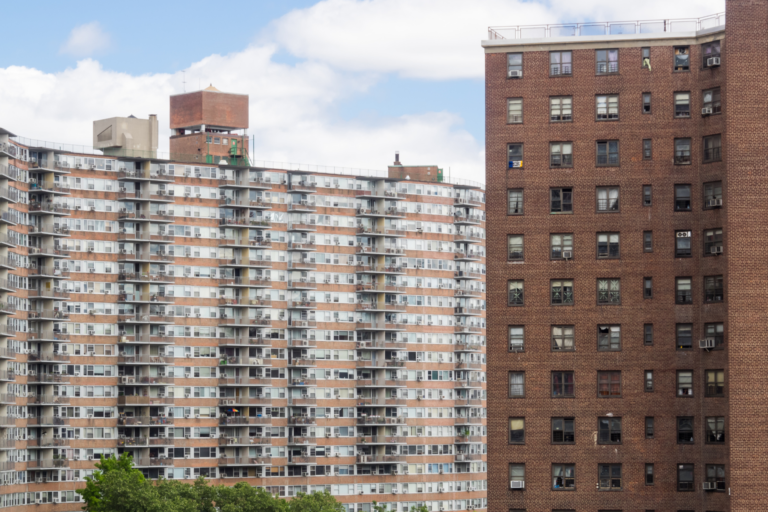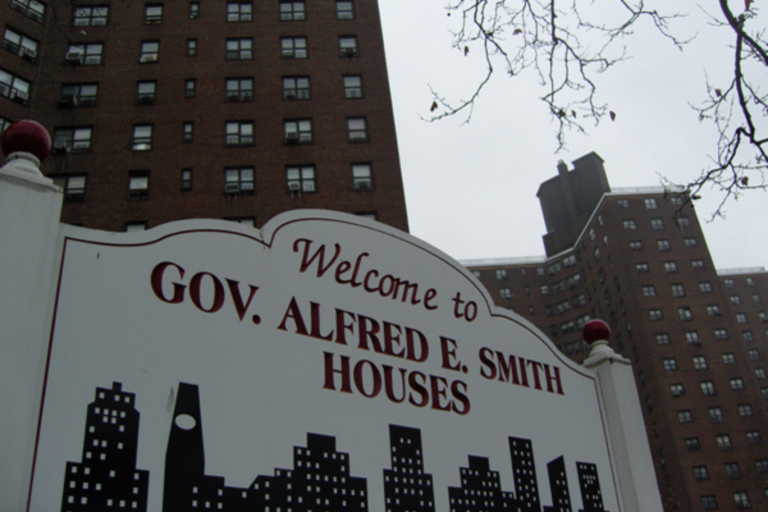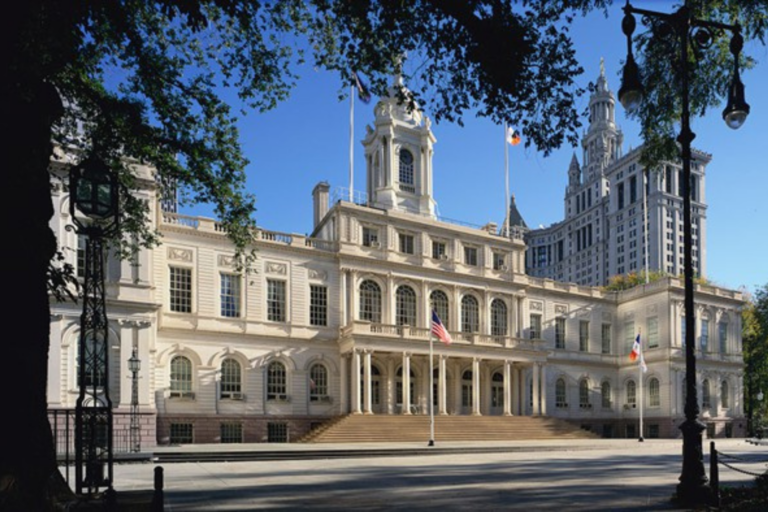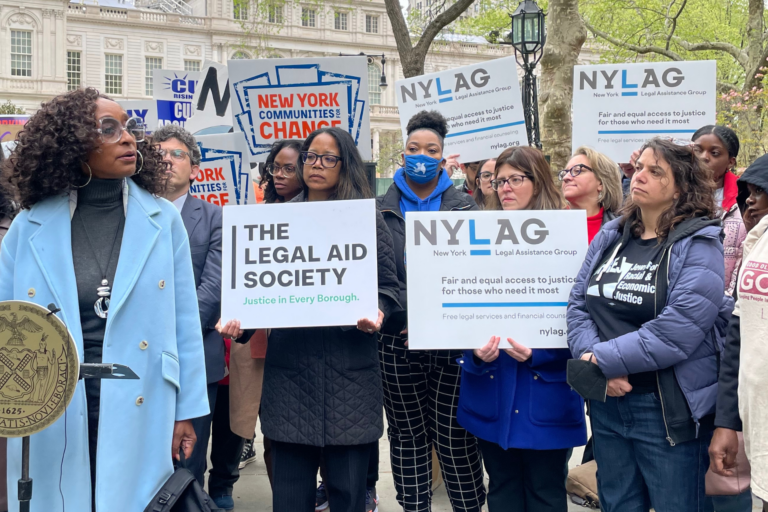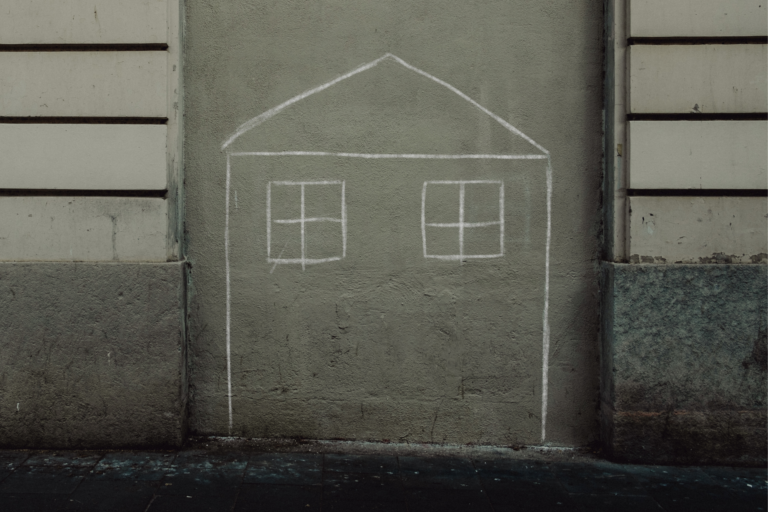By Brian Pacheco, NYLAG’s Director of Communications & Marketing
How long can our government kick a can down the road? That’s the proverbial question when it comes to the current housing crisis. The can? A looming housing crisis as thousands are unable to afford rent due to the economic fallout of COVID-19. Unemployment rates are at all-time highs and so many people lost critical income that supports their families. People are struggling and need help now.
The answer to this crisis so far has been to stall eviction via various eviction moratoria. While this policy has ensured no one can be evicted now, it does not offer protections for later. I sat down (virtually) with three housing experts to discuss the current crisis, and what needs to be done.
Let’s talk about eviction moratoria. Why aren’t they a solution?
Miles Walser (NYLAG Tenants’ Rights attorney): Moratoria only stall the problem; they don’t address the issue. Nothing will get done unless there is rent relief. Whether that is in the form of mass vouchers or canceling rent can be debated, but some amount of the unpaid rent burden needs to be forgiven. To me, our government is kicking the can as far as possible to frame any future evictions as personal failures instead of a policy failure.
Kendall Wells (NYLAG Tenants’ Rights attorney): I agree. If there isn’t rent relief, there will still be negative effects with some of the other solutions, including money judgments, which are inevitable because of New York’s Tenant Safe Harbor Act. A money judgment may not immediately mean you get evicted, but it will negatively affect your ability to pay rent in the future, as they can garnish your wages and restrain your bank account. These money judgments, which remain collectible for at least 20 years, will disparately impact people of color who have experienced the worst health and financial impacts of the pandemic. Money judgments serve as another example of poverty being systemic and how COVID-19 has only exacerbated preexisting disparities. We’re further burdening people experiencing poverty and widening and entrenching the racial wealth gap.

Talk to me about poverty being systemic. How is that at play during this housing crisis?
Kendall: Some measures taken to assist tenants during the pandemic don’t recognize that poverty and racism existed before the pandemic. For example, some government programs require that a tenant’s economic hardship occurred during the COVID-19 pandemic in order to qualify for potential relief. This separates those who experienced poverty before the pandemic from tenants whose income has been directly impacted by the pandemic. This penalizes and criminalizes poverty and makes things far worse. I believe that we need to treat people the same regardless of when poverty is experienced.
Gabriela “Gaby” Malespin (NYLAG Tenants’ Rights paralegal): Consider the choices those experiencing poverty have to make, as well. “Do I feed my kids? Or pay rent?” I hear it all the time—these are difficult choices no one should be forced to make.
“Do I feed my kids? Or pay rent?”
Miles: I agree. We’re in a pandemic. I’ve personally had two clients die. This is mass trauma. We’re focusing on survival—no one should have to also deal with the stress of “Will I be evicted?” There are so many other things clients should be worried about.
Are landlords adhering to the eviction moratorium?
Kendall: Legally they have to, but we are seeing lots of harassment and intimidation from landlords targeting tenants who can’t pay rent. This can be tricky for us because at NYLAG we represent eviction cases but do not typically represent tenants in affirmative harassment cases. Of course, we do our best to refer and provide general advice and counsel, but it’s a growing concern as some landlords become more desperate to get the rent.
A client calls scared they may face eviction, what options do they have?
Kendall: The typical avenue is emergency arrears grant from the Human Resources Administration (HRA) or assistance from charities/outside organizations, which means the tenant can get some money to pay their back rent (or arrears). However, the pandemic has created a catch-22 even in the best of cases. To qualify for these grants, tenants typically need to show that they have the ongoing ability to pay rent. Due to rampant unemployment and general economic insecurity during the pandemic, many tenants cannot pay ongoing rent. This issue combined with dwindling funds for these grants makes it more challenging for tenants to receive assistance now. As lawyers, we can’t create money out of thin air. There is so much uncertainty.
Miles: Obviously, the eviction moratoria will help most people at-risk of eviction not be evicted now. However, in NY the moratorium ends Oct 1st. (Editor’s Note: as As of September 29, 2020, the eviction moratorium has been extended for some tenants to January 1st, 2020 pursuant to Executive Order 202.66.) The biggest threat is those cases before COVID-19. Unless the NY government intervenes to extend the moratorium, landlords will be allowed to evict people.
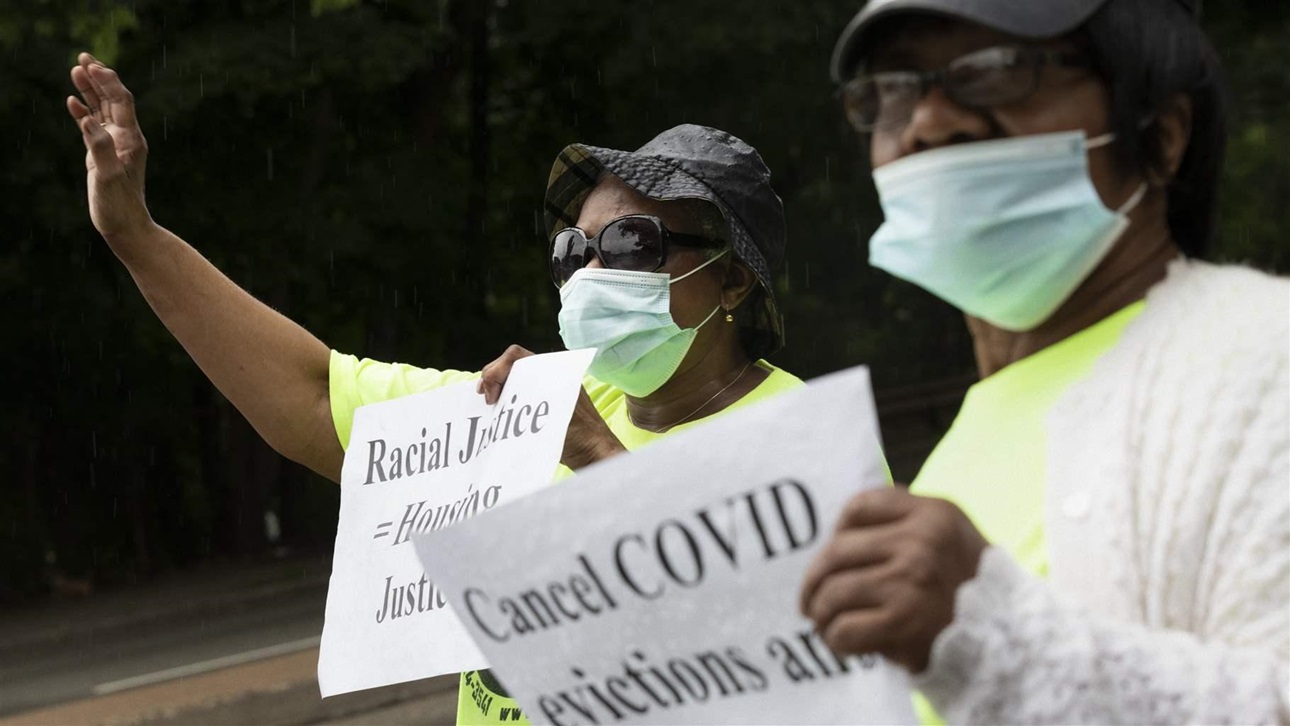
Isn’t there a federal eviction moratorium that the CDC put out that will give relief until the end of 2020?
Kendall: Yes, and this will help some people. But there is a lot of misinformation. Tenants see it in the news and may wrongfully think they qualify but don’t. It’s only applicable for some cases and you have to meet a list of requirements. Generally speaking, the CDC moratorium only protects tenants in nonpayment cases. To benefit from the protections of the moratorium tenants must first send their landlord a sworn declaration.
Miles: Honestly, some of these laws and orders are poorly drafted and confusing. I urge tenants to call a lawyer so we can help understand and navigate your unique situation. And no one should have to figure this out alone while dealing with a thousand other traumas and stressors.
No one should have to figure this out alone while dealing with a thousand other traumas and stressors.
Gaby: Immigrants are especially vulnerable.
Talk to me about immigrants and the lack of resources that exist for them during COVID.
Gaby: So many of the current reliefs like one-shot-deals or rent subsidies such as FHEPS or CityFHEPS require a documented immigration status or citizenship. It’s upsetting because we’ve relied on immigrants to be essential workers and yet we’ve shut their communities out of so much of the assistance. For example, undocumented immigrants didn’t get the stimulus checks or unemployment. That coupled with a loss of employment means no income to pay rent, or even eat.
I also understand that seniors are also in a difficult spot.
Miles: Yes. Older tenants who have Social Security or otherwise live on a fixed income aren’t going to be able to make up rental arrears if they fall behind, and may also have a hard time qualifying for rental assistance if the city determines that they can’t afford their ongoing rent.
While COVID-19 has made the housing crisis even worse, it was still pretty challenging before?
Miles: Yes, we have to remember that the housing crisis was pretty dire before COVID. Many people of color didn’t have a fair opportunity at home ownerships or further plummeted into poverty, because of systemic intentional barriers such as the GI bill and Redlining.
Gaby: Our country has a history of a lack of proper investment in black and brown tenants to stay in their homes and communities. We need large transformative solutions.
Well, what are the solutions?
Gaby: We need to expand voucher programs. We need better laws that dramatically limit how much landlords can increase rent. I believe that we need communal and social housing programs. We need to invest in addressing the housing insecurity crisis.
Miles: I agree. We need to reimagine and reinvest in renting. Tenants should have a right to renewal leases and the city should invest in more regulated units. As COVID has shown, there is safety is stability.
Gaby: Housing is healthcare.
Miles: There needs to be some rent relief to address what has happened because of COVID, which is what we are advocating for at NYLAG.
To play devil’s advocate, aren’t some of those solutions expensive in total?
Miles: It’s going to be expensive. To not do it will be more expensive.
Gaby: There are tens of thousands of vacant apartments in the city. When we think of homelessness, it would be so much cheaper to pay for housing than the shelter system. Stable housing reduces health costs. Even when we are at these boiling points like we are with COVID-19, we think these solutions are too radical or costly. Yet, our government continues to bail out large corporations and banks.
Stable housing reduces health costs.
Miles: The right to counsel— which guarantees a lawyer to someone in poverty or near poverty who is facing eviction— happened in part because activists pointed out to the city that they would save money if we had lawyers vs. evicting people.
To end, what do you want tenants and others to know about the current housing crisis?
Miles: That safe and secure housing is a human right. We need to do more to keep people in their homes not just during COVID-19, but long term.
Gaby: This pandemic has highlighted the importance of community organizing. The housing crisis isn’t fair and disproportionately harms people of color and those experiencing poverty. You have a right to demand better. Get involved with your local housing organizations or tenants’ rights organizations to demand change. The Right to Counsel Coalition is a good place to start.
Kendall: I want tenants to stay informed. If you are a New Yorker, please reach out to us at NYLAG before signing any declarations or making assumptions on your protections from what you see in the news.

